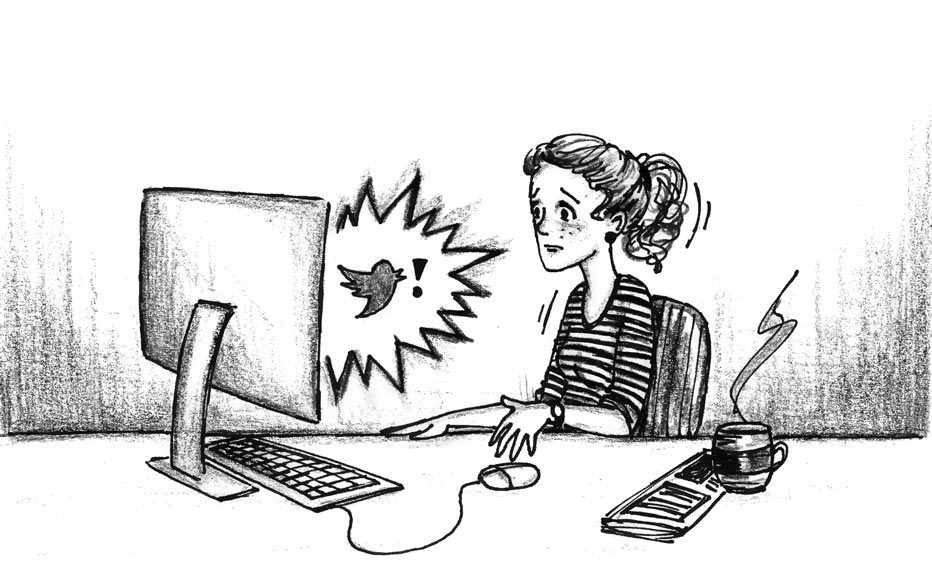
Sexual harassment isn’t inevitable
I have pages of graphic rape and death threats organized in a folder. They’re arranged by date, and multiple threats sent by the same person are colour-coded with sticky notes. The threats aren’t unusual. I’ve accumulated them as the result of being a woman on the Internet.
Conventional advice suggests that I should ignore these threats. It’s like avoiding bullies in a school yard in the hope that they’ll go away. But receiving graphic descriptions of someone’s plan to rape me shouldn’t be the price I have to pay for using the Internet.
Sexual harassment isn’t inevitable. It’s not an occupational hazard of being online. Women are harassed intentionally by people who want to hurt and intimidate us. We deserve to feel safe both online and in the real world.
Women are much more likely than men to be harassed online. University of Maryland researchers conducted a study where they created fake chat room profiles with either feminine or masculine names. Accounts with feminine names received around 100 threatening or sexually explicit messages a day, while accounts with masculine names received around 3.7.
Currently, the University of Calgary’s policy on sexual harassment doesn’t mention social media. Their suggested first step to stop harassment is “informing the alleged harasser that such behaviour is offensive.” Victims of harassment shouldn’t be asked to assume responsibility for stopping it. That’s why we have Campus Security and a university administration. Sending back a polite email to the person who threatened to slit my throat and rape me isn’t going to help anyone.
Taking steps against sexual harassment on social media is hindered by the idea that threats on the Internet are less real or less violent than threats delivered via mail or in person. But this isn’t true.
Women who are harassed and intimidated online aren’t better off than women who are harassed and intimidated while walking down the street. A rape threat isn’t less frightening when you receive it via Twitter.
The U of C’s sexual harassment policy hasn’t been updated since January 1990. In the 25 years since then, our understanding of sexual harassment has changed.
Social media didn’t exist 25 years ago. The current policy can’t do anything about students being harrassed on Twitter because it was written before the site existed. Having a policy that doesn’t address any of these changes is a gross misstep, especially considering that the U of C claims the policy is “regularly revised and updated.”
Addressing the sexual harassment that women face should be more than a photo op. It requires constant work. Writing policy isn’t the end of creating a safe campus for women. We need to ensure that the dialogue surrounding sexual harassment and assault prioritizes the voices of people affected. We need to make sure the people handling these cases are trained to handle them with sensitivity and tact.
Forming a committee to address the prevention of sexual harassment and sexual violence is a good first step. But it’s just a first step. We should have done this a long time ago. Being a woman online doesn’t have to be dangerous.
Kate Jacobson, Gauntlet Editorial Board
